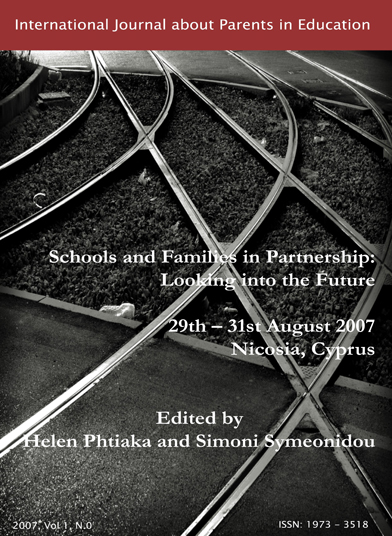Types of parents and school strategies aimed at the creation of effective partnerships
DOI:
https://doi.org/10.54195/ijpe.18248Abstract
In order to expand parental participation in the education of their children, teachers should be equipped with some basic and possibly new skills for communication and cooperation purposes. Schools host a very diverse population of pupils, and the purpose of the present study was therefore to attain a better understanding of what various groups of parents expect of education and the school in order to develop a framework for school strategies to involve different types of parents. The research included a review of the literature, consultation with three expert panels, a web survey of 500 school leaders, an interactive focus group, 20 case studies to identify promising practices and the identification of strategies to expand parental participation. The results showed parents in ‘white’ schools to support teachers during activities (parents as supporters). Non-minority parents and certainly those from higher social milieus were accustomed to having a say in school matters (parents as politicians). In schools with many disadvantaged pupils, in contrast, little or no attention was paid to having parents have a say in school matters. A bottleneck in ‘white’ schools was that parents do not have time to participate due to their work (career parents). A bottleneck in ‘black’ schools is that parents do not perceive themselves as qualified to participate (absentee parents). It is further shown that strategies which parallel the different types of parents can be identified for school teams to realize effective partnership relations.Downloads
Published
2023-11-11
Issue
Section
Articles
How to Cite
Types of parents and school strategies aimed at the creation of effective partnerships. (2023). International Journal about Parents in Education, 1(1). https://doi.org/10.54195/ijpe.18248





